Example Type 3 from DC PANDEY PHYSICS (HINGLISH) THERMOMETRY,THERMAL EXPANSION & KINETIC THEORY OF GASES for Class 11
| Class 11 | PHYSICS |
| Chapter | THERMOMETRY,THERMAL EXPANSION & KINETIC THEORY OF GASES |
| DC PANDEY PHYSICS (HINGLISH) | Example Type 3 |
| Medium | English |
| Academic Year | 2023-2024 |
Question 3
A steel rular exactly 20cm long is graguated to give correct measurements at 20∘C.
(a) Will it give readings that are too long or too short at lower temperatures?
(b) What will be that actual length of the rular when it is used in the desert at a temperature of 40∘C ? αsteel=1.2×10−5(.∘C)−1 .View SolutionQuestion 6
A sphere of diameter 7.0 cm and mass 266.5 g float in a bath of liquid. As the temperature is raised, the sphere begins to sink at a temperature of 35∘C. If the density of liquid is 1.527gcm−3 at0∘C, find the coefficient of cubical expansion of the liquid. Neglect the expansion of the sphere.View SolutionQuestion 10
The p-T graph for the given mass of an ideal gas is shown in figure. What inference can be drawn regarding the change in volume (whether it is constant, increasing or decreasing) ?
How to proceed Definitely, it is not constant. Because when volume of the gas is constant p−T graph is a straight line passing through origin. The given line does not pass through origin, hence volume is not constant.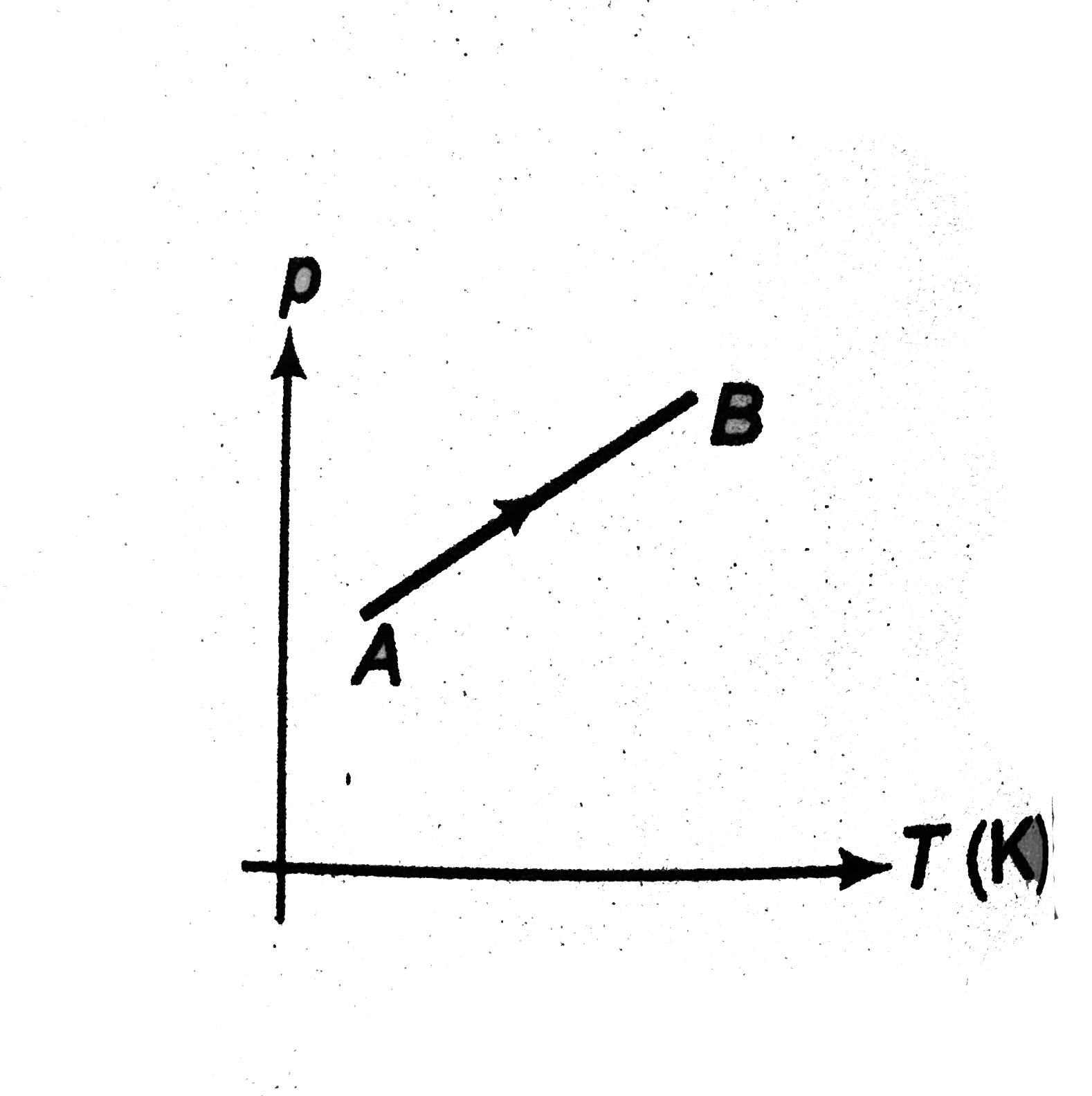 .
.
V=(nR)(TP)
Now, to see volume of the gas we will have to see whether TP is increasing or decreasing.View SolutionQuestion 11
A gas at 27∘C in a cylinder has a volume of 4 litre and pressure 100Nm−2.
(i) Gas is first compressed at constant temperature so that the pressure is 150Nm−2 . Calaulate the change in volume.
(ii) It is then heated at constant volume so that temperature becomes 127∘C. Calculate the new pressure.View SolutionQuestion 19
A tank used for filling helium balloons has a volume of 0.3m3 and contains (2.0) mol of helium gas at 20.0∘C. Assuming that the helium behaves like an ideal gas.
(a) What is the total translational kinetic energy of the molecules of the gas ?
(b) What is the average kinetic energy per molecule ?View SolutionQuestion 20
Consider an 1100 particels gas system with speeds distribution as follows :
1000 particles each with speed 100m/s
2000 particles each wityh speed 200m/s
4000 particles each with speed 300m/s
3000 particles each with speed 400m/s and 1000 particles each with speed 500m/s
Find the average speed, and rms speed.View SolutionQuestion 22
In a crude model of a rotating diatomic molecule of chlorine (Cl2), the two (Cl) atoms are 2.0×10−10m apart and rotate about their centre of mass withb angular speed ω=2.0×1012rad/s. What is the rotational kinetic energy of one molecule of Cl2 , Which has a molar mass of 70.0g/mol ?
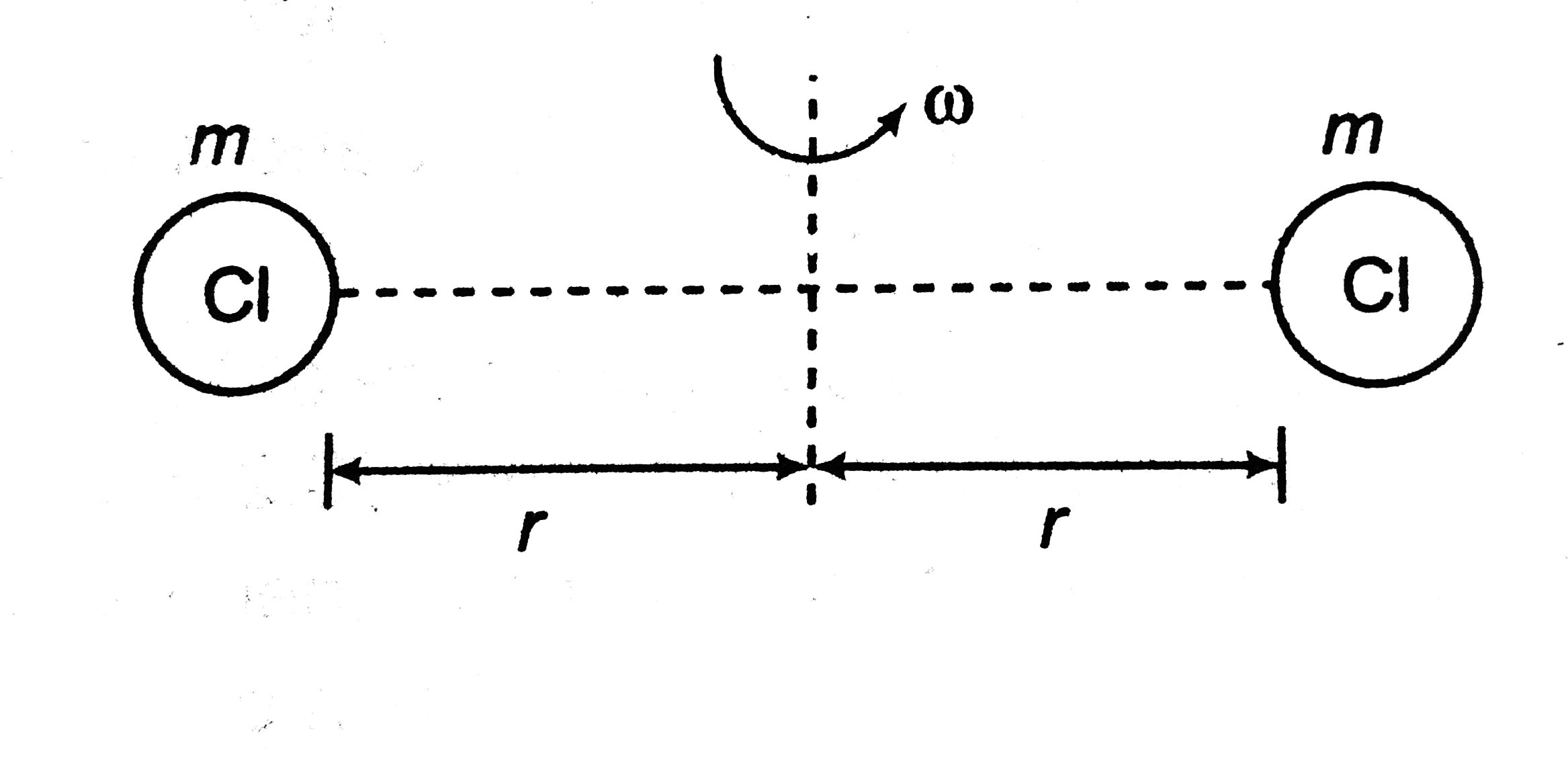 .View Solution
.View SolutionQuestion 26
A cubical box of side 1m contains helium gas (atomic weight 4) at a pressure of 100N/m2. During an observation time of 1second, an atom travelling with the root - mean - square speed parallel to one of the edges of the cube, was found to make 500hits with a particular wall, without any collision with other atoms . Take R=253j/mol−Kandk=1.38×10−23J/K.
(a) Evalite the temperature of the gas.
(b) Evaluate the average kinetic energy per atom.
( c) Evaluate the total mass of helium gas in the box.View SolutionQuestion 27
1g mole of oxygen at 27∘C and (1) atmosphere pressure is enclosed in a vessel.
(a) Assuming the molecules to be moving with (vrms, find the number of collisions per second which the molecules make with one square metre area of the vessel wall.
(b) The vessel is next thermally insulated and moves with a constant speed (v0. It is then suddenly stoppes. The process results in a rise of temperature of the temperature of the gas by 1∘C. Calculate the speed v0.[k=1.38×10−23J/K and NA=6.02×1023/mol].View SolutionQuestion 28
An ideal diatomic gas with CV=5R2 occupies a volume (Vi at a pressure (Pi. The gas undergoes a process in which the pressure is proportional to the volume. At the end of the process, it is found that the rms speed of the gas molecules has doubles from its initial value. Determine the amount of energy transferred to the gas by heat.View SolutionQuestion 30
An air bubble starts rising from the bottom of a lake. Its diameter is 3.6mm at the bottom and 4mm at the surface. The depth of the lake is 250cm and the temperature at the surface is 40∘C. What is the temperature at the bottom of the lake? Given atmospheric pressure = 76cmofHgandg=980cm/s2.View SolutionQuestion 31
(p - V) diagram of (n) moles of an ideal gas is as shown in figure. Find the maximum temperature between (A) and (B).
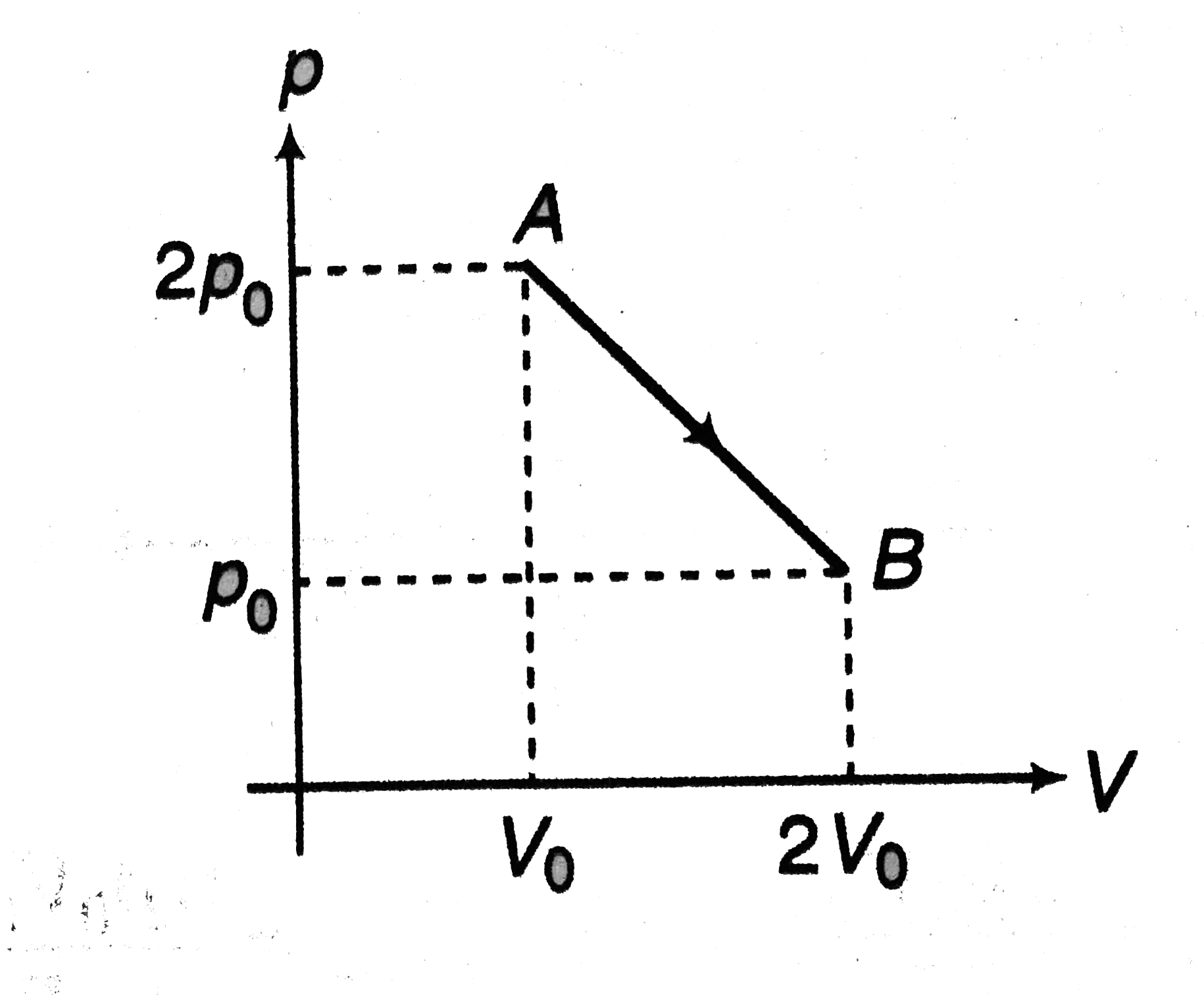 .
.
How to proceed For given number of moles of a gas,
T∝pV(pV=nRT)
Although (pV)A=(pV)B=2p0V0orTA=TB, yet it is not an isothermal process. Because in isothermal process (p- V) graph is a rectangular hyperbola while it is a straight line. So, to see the behaviour of temperature, First we will find either (T - V) equation or (T _ p) equation and from that equation we can judge how the temperature baries. From the graph, first we will write )p V) equation, then we will convert it either in (T - V) equation or in (T - p) quation with the help of equation, (pV = nRT).View Solution
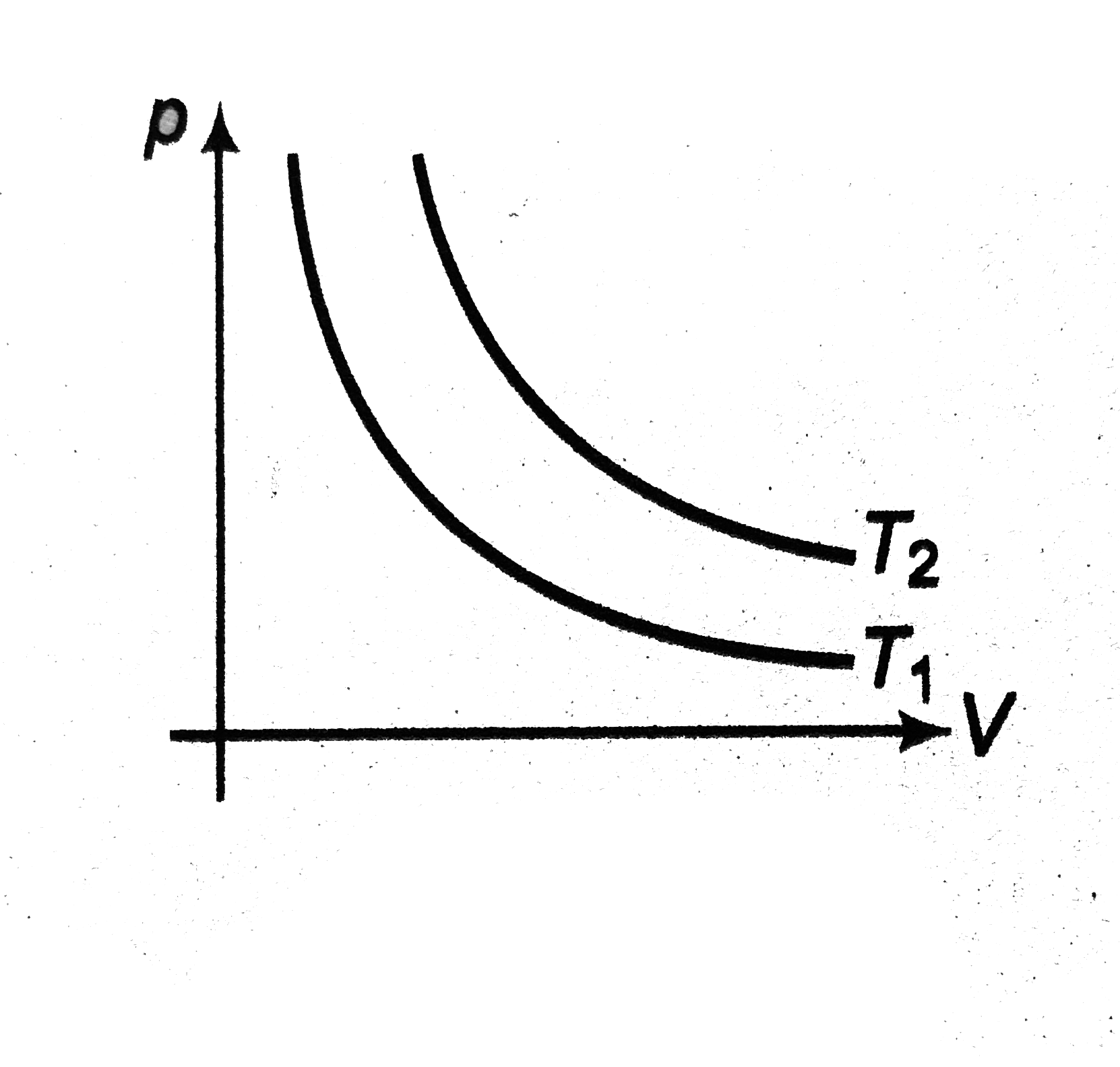 .
.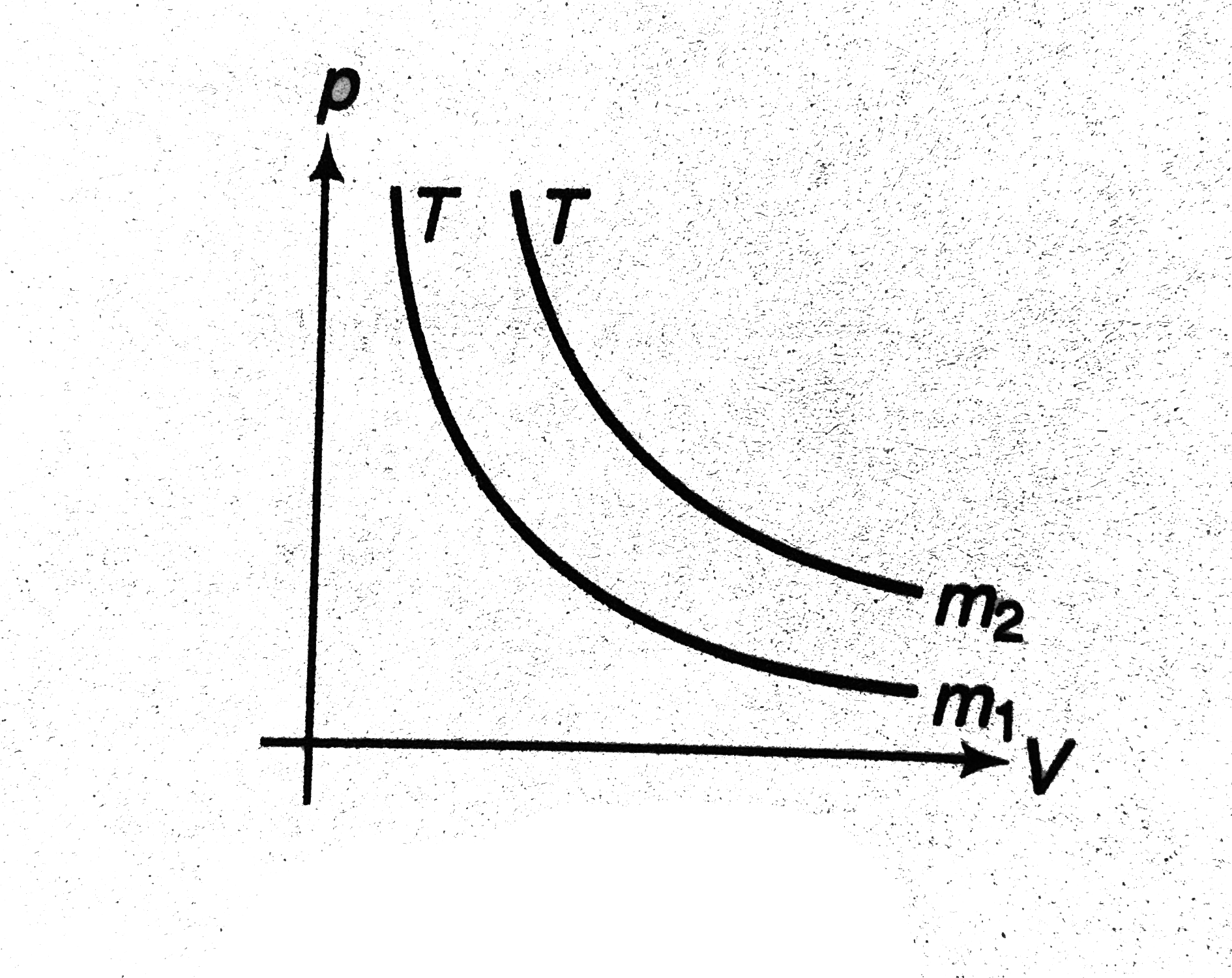 .
.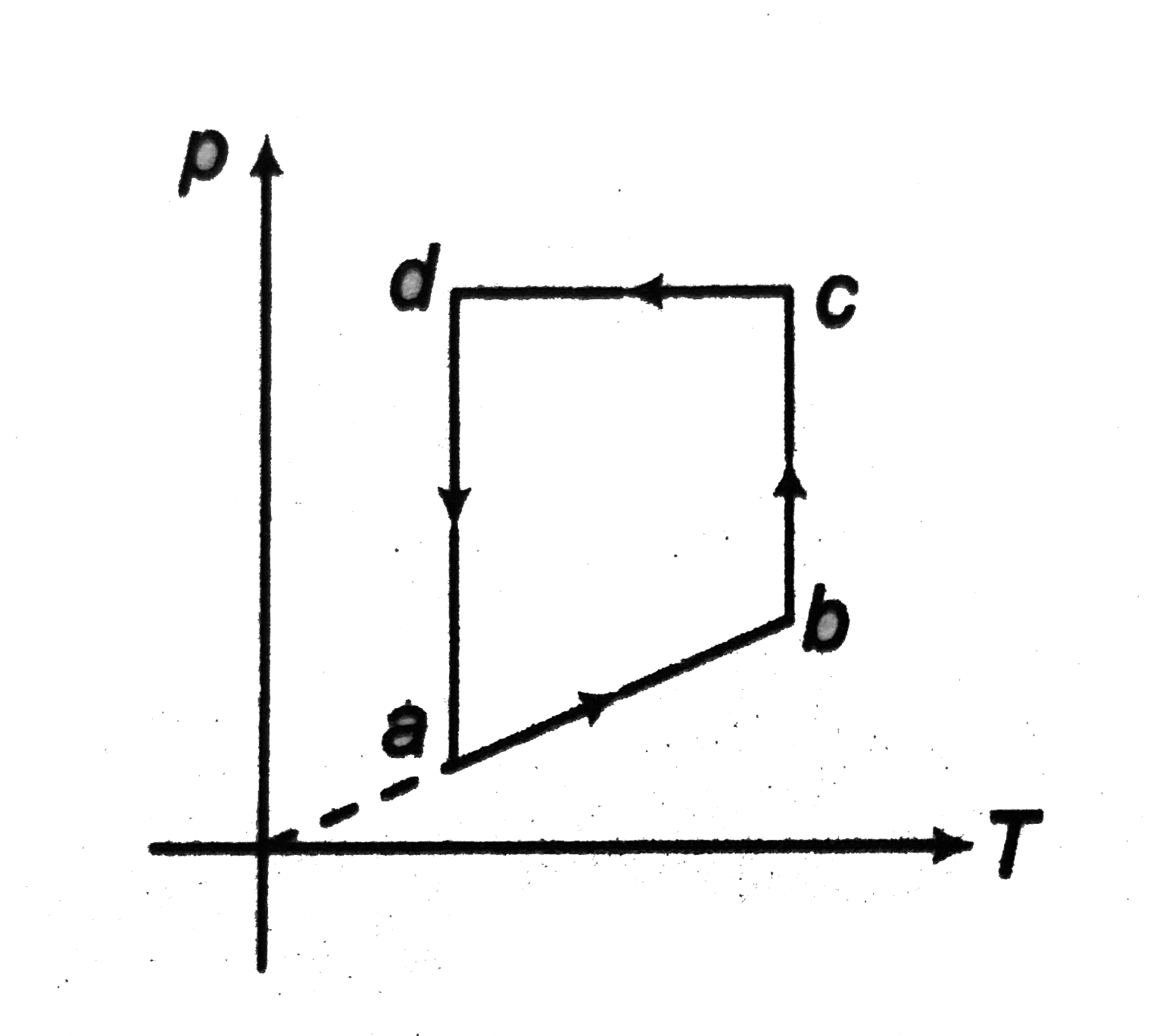
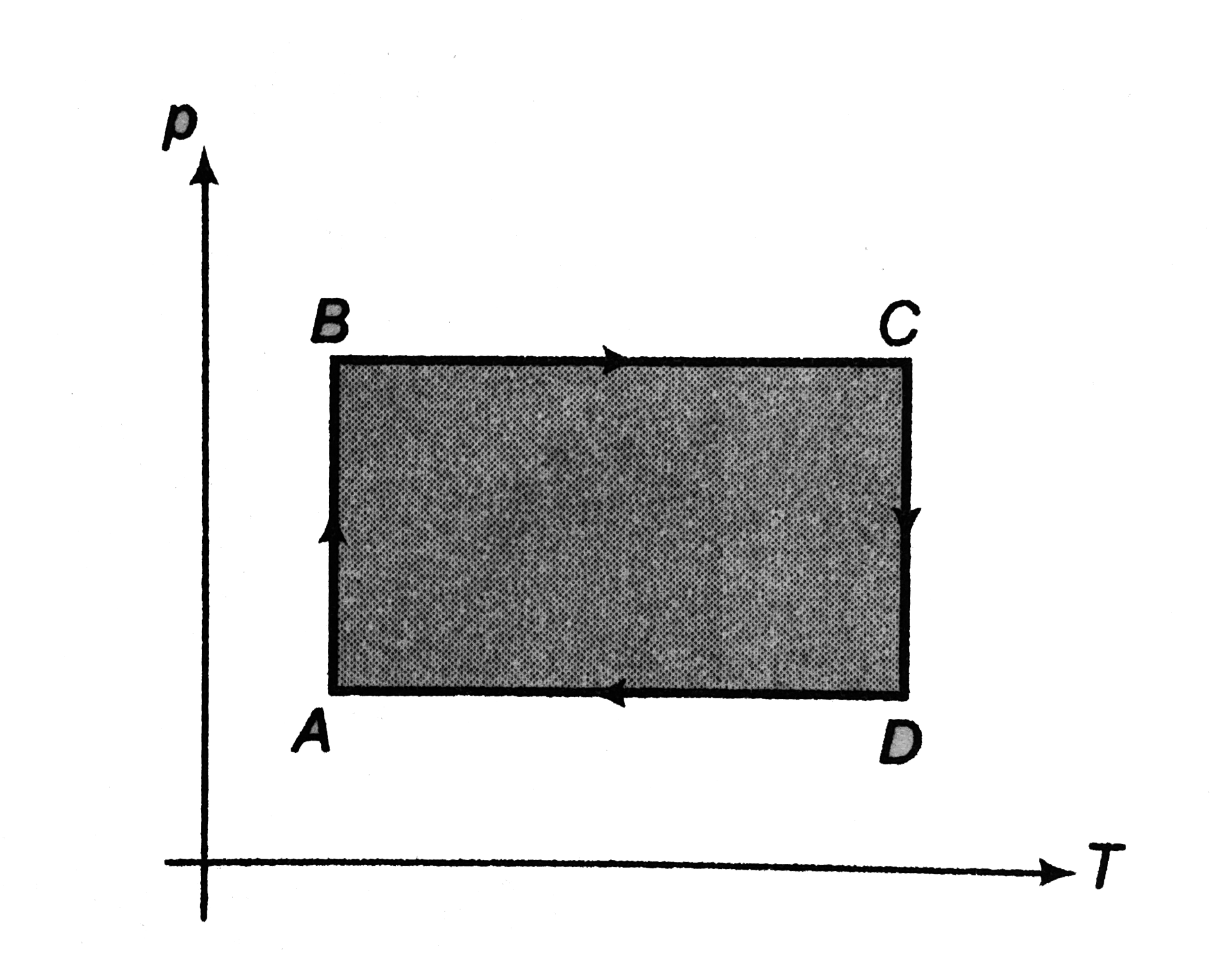 .
.